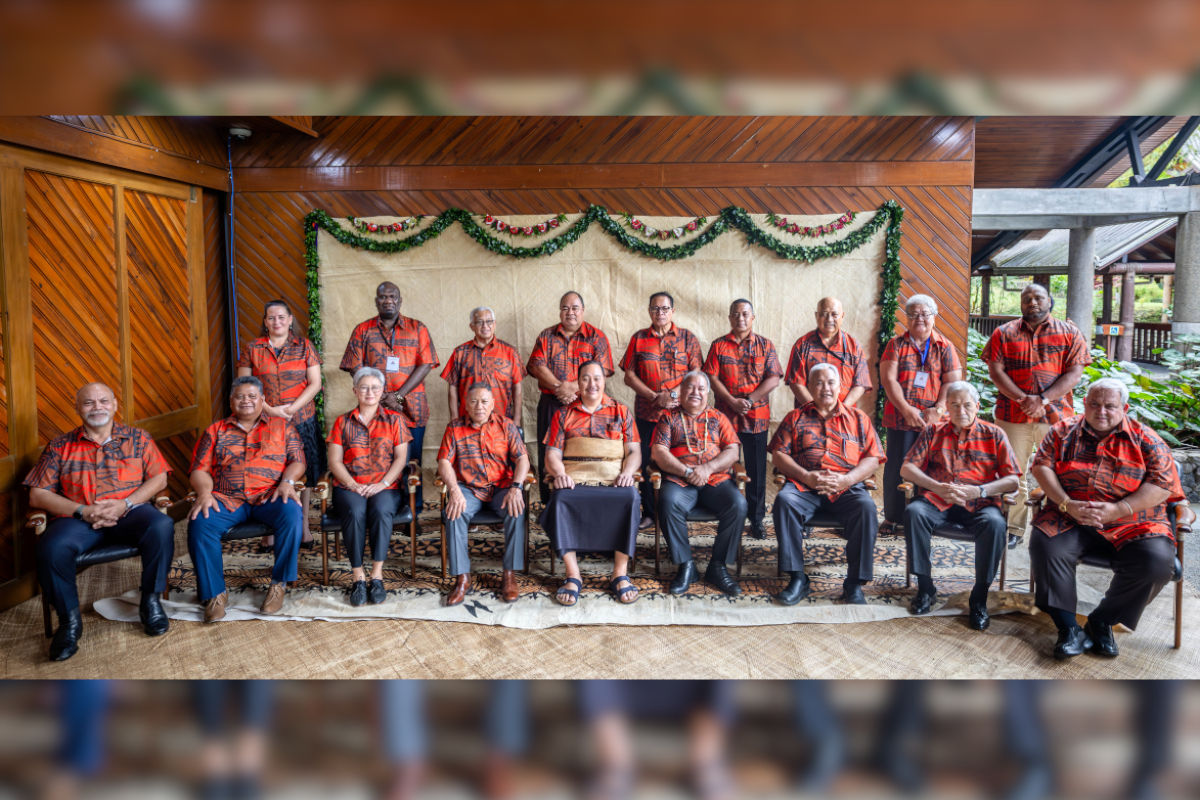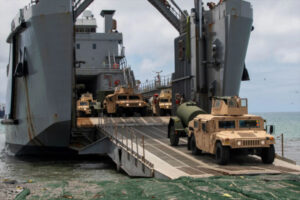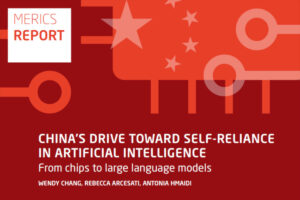The Suva Outcomes Turn Bureaucratic Pages into a Political Mirror
On August 14, 2025, the Pacific Islands Forum Secretariat in Suva, Fiji, hosted the annual gathering of foreign ministers from across the region. At the close of the meeting, the Secretariat released the 2025 Forum Foreign Ministers Meeting Outcomes. On paper, it looks like a technical communiqué. In reality, it is the condensed voice of a region caught between global powers and struggling to affirm its sovereignty.
Every word in this document is the product of negotiation. Ministers from Australia, New Zealand, Papua New Guinea, and the smaller island states worked through layers of disagreement to present a single position before the Leaders’ Summit in Honiara next month. What appears as a list of decisions is in fact a map of how the Pacific intends to hold its ground in the face of intensifying U.S.–China rivalry, Australian ambitions, and France’s lingering colonial grip.
The importance of the Outcomes lies in its dual function. It records the immediate agreements reached in Suva, but it also captures the strategic mood of the region. The Forum has lived through fractures before — most visibly in 2021, when Micronesian states walked away in protest and later returned under a fragile compromise. That memory hangs in the background of this year’s meeting, shaping both tone and urgency.
To read the Outcomes today is to see a region rehearsing unity. Ministers know that the Honiara Leaders’ Meeting will demand clear positions on climate, nuclear legacies, and security. The Suva document serves as preparation, a rehearsal of solidarity in a moment when solidarity itself is under siege.
Regionalism Builds a Fortress Against the Great Power Game
The Suva meeting reaffirmed regionalism as the central strategy for survival. Ministers devoted significant attention to the Review of Regional Architecture, a process designed to tighten coordination, streamline institutions, and protect coherence. What may look like technical governance is, in fact, political strategy. By solidifying regional structures, the Forum reduces the space for external actors to play members off against each other.
This move carries the weight of history. Pacific regionalism has always been fragile, often caught between dependence on outside donors and the desire for collective strength. The memory of the Micronesian walkout remains an open warning: if internal equity is not respected, unity crumbles. By reinforcing architecture now, ministers aim to inoculate the Forum against future fractures.
Looking ahead, the RRA could also sharpen the region’s posture toward external powers. A more unified Forum may resist being pulled into either Washington’s orbit or Beijing’s embrace. The risk, however, is bureaucratic inertia. If the reform process produces heavy machinery rather than nimble decision-making, the Forum could find itself too slow to react to fast-moving geopolitical contests.
The document captures this tension but does not resolve it. It signals intent to build strength from within, while leaving open the question of how quickly and effectively that strength can be mobilized.
The 2050 Strategy Demands More Than Speeches and Patience
The ministers in Suva also pushed forward the 2050 Strategy for the Blue Pacific Continent, a plan first endorsed in 2022. That strategy aimed to give the region a long-term vision across climate, economy, and governance. Three years later, the rhetoric is familiar, but the demand has shifted: transition from vision to implementation.
The Pacific Islands Forum 2025 outcomes highlight this impatience. The Annual Report on Regional Collective Actions, introduced as a tool of accountability, now becomes a test of credibility. Without tangible progress, the 2050 Strategy risks being perceived as another cycle of grand statements with little impact on daily lives.
Context matters here. Pacific states have long suffered from the pattern of donor-driven initiatives that promised transformation but delivered dependency. Ministers want to break that cycle. By tightening reporting and insisting on measurable outcomes, they are signaling that the 2050 Strategy cannot survive as a symbolic banner alone.
The future of this agenda depends on speed. If implementation accelerates, the Forum will reinforce its legitimacy at home and gain leverage abroad. If delays persist, partners will lose confidence and the region’s ability to lead on global issues, particularly climate, will diminish.
New Caledonia and West Papua Keep the Forum Balancing on a Tightrope
No Pacific gathering can avoid sensitive questions, and Suva was no exception. The Forum addressed political tensions in New Caledonia, where negotiations between the French state and local actors continue to shape the territory’s uncertain future. Ministers noted the draft Bougival Accord and signaled support for ongoing dialogue.
The discussion of West Papua followed a familiar script: recognition of Indonesian sovereignty, paired with emphasis on continued dialogue regarding human rights and community concerns. It is a balancing act that the Forum has repeated for years. To ignore West Papua would undermine credibility in Melanesia, yet to confront Jakarta directly would jeopardize a critical regional relationship.
Both issues reveal the Forum’s predicament. It seeks to present a united face to external powers, but it is pulled into conflicts it cannot fully control. The Outcomes document reflects this dilemma with careful wording. The Forum affirms dialogue and consultation, but behind the language lies the recognition that these political questions could destabilize regional unity at any moment.
As the Forum edges into these contested arenas, the stakes rise. Engagement in New Caledonia and West Papua shows the Forum’s ambition to act as a regional political body, not only a functional organization. That ambition carries risk, but also potential — the ability to translate regional solidarity into genuine influence in global politics.
Nuclear Ghosts Knock on Washington’s Door Once Again
Among the most striking elements of the Pacific Islands Forum 2025 outcomes is the renewed attention to nuclear legacies. The meeting coincided with the 40th anniversary of the Rarotonga Treaty, a milestone that gave ministers a platform to highlight the unfinished business of the nuclear age. The Republic of the Marshall Islands signed the treaty during the session, a symbolic act loaded with history.
The nuclear debate is never just about the past. For the Marshall Islands, the consequences of U.S. testing remain unresolved. Health crises, displacement, and demands for compensation continue to shape domestic politics and regional diplomacy. The Forum used the anniversary to remind Washington of its responsibilities, calling again for meaningful action.
The outcomes also reference concerns about Japan’s ALPS discharges and the broader issue of nuclear contamination. Ministers emphasized solidarity and the need for scientific oversight, pushing for long-term monitoring in partnership with the International Atomic Energy Agency.
By weaving nuclear issues into the agenda, the Forum transforms memory into leverage. These discussions tie together justice for past actions and vigilance for present risks. In doing so, the Forum signals that nuclear questions remain a core part of the Pacific’s identity and a tool for negotiating with great powers.
The Climate Fight Defines the Pacific’s Survival Script
If nuclear memory anchors the region in history, climate defines its immediate survival. The Suva meeting left no doubt: climate remains the single greatest threat to Pacific livelihoods. The Pacific Islands Forum 2025 outcomes place the upcoming COP31 at the center of this battle.
Ministers endorsed Australia’s bid to host COP31 as a “Pacific COP.” The framing matters. For the Forum, this is not Australia’s moment but a collective stage for island voices. Yet beneath the language of unity lies tension. Australia remains one of the world’s largest coal exporters, and its domestic policies often clash with the ambitions it projects in regional diplomacy.
Vanuatu’s success in leading the campaign for an International Court of Justice advisory opinion on climate change gave the Forum new momentum. The July 2025 ruling affirmed the obligations of states to protect vulnerable populations, a legal and symbolic victory for small states that dared to confront the global order. Ministers pledged to keep the momentum alive by advancing a follow-up resolution at the UN.
Here the Forum speaks with unusual clarity. Climate is not a secondary issue; it is the arena where sovereignty, justice, and global politics intersect. The outcomes reflect an urgent demand: the world must act, and the Pacific intends to force the conversation forward.
Economies Grow Muscles When Labour, Kava, and Tuna Rewrite the Rules
Beyond survival, the ministers also focused on the mechanics of economic resilience. The establishment of the Pacific Resilience Facility (PRF) emerged as a flagship initiative. Once operational, it will serve as a dedicated fund for climate adaptation, disaster preparedness, and recovery. The Pacific Islands Forum 2025 outcomes confirm readiness to sign the treaty at the Leaders’ Meeting, with expectations of stronger partner contributions.
The Forum also advanced the Pacific Regional Labour Mobility Principles. These principles aim to safeguard workers’ rights and secure fairer economic returns from migration schemes. Labour mobility is more than an economic arrangement; it touches communities, remittances, and political ties with host countries like Australia and New Zealand.
Other items reveal the Forum’s strategy to link culture and commerce. The draft Kava Declaration underscores the plant’s economic significance and its role in Pacific traditions. Ministers also flagged the unsettled issue of the U.S. Tuna Treaty payment, an example of how financial commitments by partners can ripple through regional trust.
Together these measures point toward gradual economic autonomy. The Forum seeks tools to manage its own resources, set its own labour terms, and integrate culture into trade policy. This shift may appear modest, but over time it could loosen dependency on external frameworks that have long dictated Pacific economies.
The Ocean of Peace Challenges the Logic of Warships
One of the most ambitious outcomes of the Suva meeting was the endorsement of the Blue Pacific Ocean of Peace Declaration. This initiative imagines the Pacific not as a theatre for strategic competition, but as a shared space of stability, solidarity, and cultural values.
The timing is significant. The region is increasingly militarized. The United States deepens security ties, Australia negotiates new defense agreements, and China expands its presence. Against this buildup, the Forum places forward a counter-narrative rooted in Pacific traditions of consensus and non-violence. Refusing to extend military agreements became more than diplomacy. It became a language of sovereignty. Indeed, the refusal of island nations to extend military agreements with the U.S. reads less like diplomatic strategy and more like a tectonic shift in agency — an assertion of sovereignty so subtle it smothers the roar of bombers.
The Pacific Islands Forum 2025 outcomes describe this declaration as a unifying articulation of values and priorities. Ministers linked it to the ongoing review of the Boe Declaration Action Plan, ensuring that the peace framework will be integrated into the region’s broader security agenda.
Whether this vision can withstand external pressure remains uncertain. Yet its very articulation reshapes the diplomatic map. By presenting the Pacific Ocean as a peace space, the Forum challenges great powers to reckon with a security model that resists the logic of military competition.
Cables Beneath the Waves Decide Who Holds Digital Sovereignty
The Suva meeting also acknowledged that sovereignty in the 21st century is wired through cables and clouds. Ministers reviewed the Pacific ICT Dialogue, stressing undersea cables, data storage, and cloud infrastructure as critical assets. The Pacific Islands Forum 2025 outcomes elevate technology from a development concern to a geopolitical priority.
This shift reflects the region’s vulnerability and its leverage. Submarine cables carry not only information but also power over economies and politics. In the same logic of infrastructural dependence, cables become no less a political weapon than sanctions, and Asian currency swaps have already shown that economic immunity to external diktat is possible. Whoever builds, secures, and maintains them shapes the future of digital connectivity. The Forum signaled that these questions are inseparable from security and autonomy.
Papua New Guinea’s leadership in digital transformation received recognition. For a country that often sits on the periphery of global tech debates, this role suggests a deliberate attempt by the Forum to anchor technology as part of its political vocabulary. The inclusion of ICT in the outcomes underscores the Pacific’s determination to frame digital infrastructure as a matter of sovereignty, not simply service delivery.
Pacific Islands Forum 2025 Outcomes Signal a Region Refusing to Drift
The Pacific Islands Forum 2025 outcomes capture more than the closing notes of a ministerial gathering. They crystallize a collective struggle for recognition and control in an ocean crowded with foreign interests. From nuclear memory to climate diplomacy, from labour mobility to digital cables, the document maps a region intent on speaking with one voice.
The stakes are clear. Without cohesion, the Pacific risks being pulled deeper into the rivalries of the United States, China, Australia, and France. With cohesion, it can transform vulnerability into influence, shaping global debates on climate, nuclear justice, and peace.
The Suva meeting does not resolve these tensions, but it defines the field on which they will play out. The Leaders’ Meeting in Honiara will test whether the commitments of ministers can translate into political authority. The Pacific has declared its path; the question now is whether it can sustain it under pressure.
The outcomes are, in this sense, a declaration of intent: the islands are not drifting with the currents of global power. They are setting their own course, and they are inviting the world to take notice.





